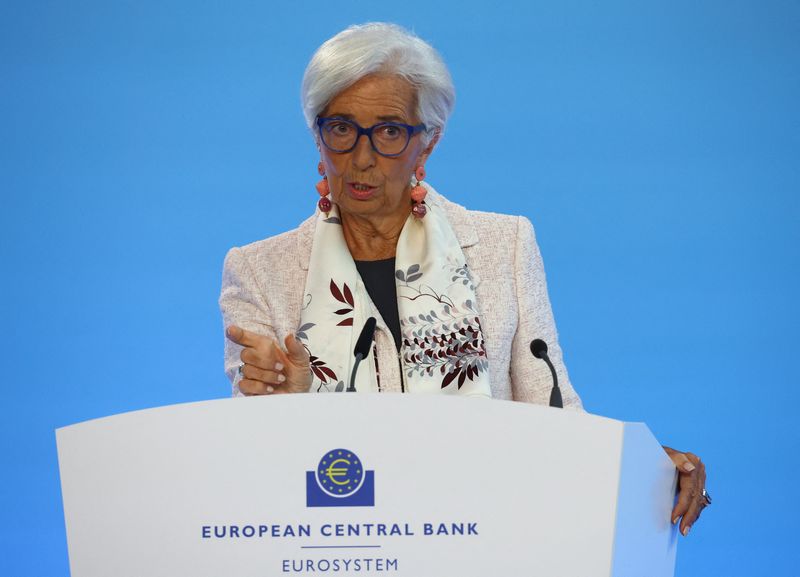FRANKFURT (Reuters) -European Union laws offer protection to the Polish central bank governor if the incoming government planned to unlawfully prosecute or suspend him, European Central Bank President Christine Lagarde said in a letter on Monday.
A coalition of pro-European Union parties that won a majority in an October election says that Governor Adam Glapinski tailored the bank’s policies to help the outgoing nationalist Law and Justice (PiS) administration, hampering the fight against inflation and breaking the constitution.
The coalition’s candidate for prime minister Donald Tusk says it has enough votes in the lower house of parliament, the Sejm, to put Glapinski before a state tribunal and is analysing the possibility.
“The Statute of the ESCB and the ECB, in order to guarantee the independence of the governors of the national central banks, offers protection in case the Sejm was to subsequently adopt a resolution to prosecute you,” Lagarde told Glapinski in a letter.
Lagarde said that such a prosecution could come with an automatic suspension of Glapinski as both the chief of the central bank and a member of the ECB’s General Council and may thus be illegal.
“You could refer such resolution to the Court of Justice of the European Union and ask for the assessment of its lawfulness,” Lagarde said.
Members of the Polish central bank’s management board and some members of its Monetary Policy Council have warned any moves against Glapinski could have a negative impact on the economy and Polish assets.
Meanwhile, Tusk said his government will not do anything that would destabilise the central bank.
(Reporting by Balazs Koranyi in Frankfurt and Anna Wlodarczak-Semczuk in Warsaw; Editing by Toby Chopra and Nick Zieminski)
